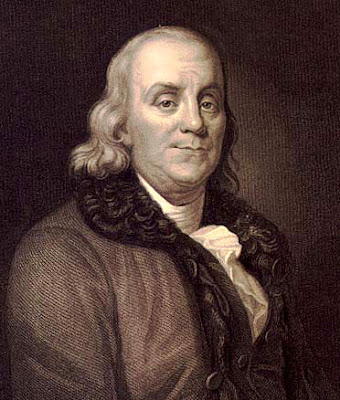A634.7.4.RB - Egoism: Psychological and Moral
Most people are not inclined to put their own needs and wants aside to satisfy the needs and wants of other people. In fact, many people hold that people are only motivated by their own self-interest. This is known as psychological egoism and it is “the theory that everyone’s actions are always and completely self-interested” (LaFollette, 2007, p. 272). The theory holds that everything a person does, regardless of how noble or charitable, is motivated by the potential for some kind of personal benefit. Even exceptionally benevolent people, Mother Teresa for example, are assumed to engage in their benevolent acts because it brings them happiness; they are therefore motivated by self-interest. In contrast to psychological egoism, ethical egoism is a prescriptive theory that claims “that people ought to always and only act to promote their own self-interests” (LaFollette, 2007, p. 272).
Although I believe that many people are primarily motivated by self-interest, I think there is a better way to live. Martin Luther King Jr. (As cited in Siang, 2016) said “Every man must decide whether he will walk in the light of creative altruism or in the darkness of destructive selfishness” (para. 2). Thomas S. Monson (2009) said “Unless we lose ourselves in service to others, there is little purpose to our own lives. Those who live only for themselves eventually shrivel up and … lose their lives, while those who lose themselves in service to others grow and flourish--and in effect save their lives” (para 7). True happiness, and therefore the ultimate self-interest comes not by seeking it. LaFollette (2007) said that “Happiness is not an end best pursued directly; it is a byproduct of activity. Attempts to pursue it directly almost always fail” (p. 275).
Unfortunately ego is often a factor in unethical decisions. Research has shown that people who feel entitled and think they should receive special treatment are more likely to break rules “because they are driven by self-interest and the need to look good in the eyes of others” (Allen, 2017, para. 2). I had a manager at a previous employer who was regularly seen violating safety practices even after he had severely disciplined others for doing the same thing. He was motivated to enforce safety procedures to make himself look good as a manager, but at the same time violated them to show everyone else that he was in charge and above the rules. Research has shown that companies should monitor the egos of their employees to prevent unethical behavior (Allen, 2017).
Leaders should model appropriate behavior for their employees. Although I do not believe leaders should behave differently than how they expect their employees to behave, I believe leaders should be rewarded for excellent work. Most employees are paid for the time they work. If they put in a certain amount of time each week they are compensated a certain amount of money. However, leaders are generally compensated for the results they are able to achieve, and not for how much they work. That is why many executives have such high salaries; because they are able to produce that kind of result for their organization. “A large proportion of a CEO’s salary is linked to the performance of their company’s share price. It is not the number of hours they work that earns them their very high salaries. It is how much value they add to their companies” (Zitelmann, 2019, para. 12).
Many times leaders behave unethically because the rewards for doing so are so great. One of the best ways to create an environment in which unethical behavior cannot survive is to develop a profit sharing system.
People generally don't steal from themselves, or skim from the top when they know they are likely to get a bigger share of the harvest if they help grow a bigger crop. . . . Profit sharing creates a broader benefit by creating a corporate culture of team building that transforms every individual into a potential contributor to an improved and mutually beneficial bottom line (Pavlo, 2014, para. 9)
As leaders strive to put their self-interest aside and behave altruistically they will develop a culture that values and promotes care and concern for others. Perhaps this often results in self-interested benefits for the leader, but that should not be the motivation for their altruistic behavior.
References
Allen, L. (2017) Investigating When and Why Psychological Entitlement Predicts Unethical Pro-organizational Behavior, Journal of Business Ethics. DOI: 10.1007/s10551-017-3456-z
Monson, T.S. (2009). What have I done for someone today? Retrieved from https://www.lds.org/general-conference/2009/10/what-have-i-done-for-someone-today?lang=eng
Pavlo, W. (2014, January 16). Making People Behave More Ethically, An MBA’s View. Forbes.com. Retrieved from https://www.forbes.com/sites/walterpavlo/2014/01/16/making-people-behave-more-ethically-an-mbas-view/#6be8511a2100
Siang, S. (2016, January 18). How to Be a Creative Altruist - A Post Inspired by Martin Luther King Jr. Retrieved from https://www.linkedin.com/pulse/how-creative-altruist-post-inspired-martin-luther-king-sanyin-siang/
Zitelmann, R. (2019, October 7). Why Do So Many People Think That CEOs Earn Too Much? Forbes.com. Retrieved from https://www.forbes.com/sites/rainerzitelmann/2019/10/07/why-do-so-many-people-think-that-ceos-earn-too-much/#5c80eb6f152e


Comments
Post a Comment